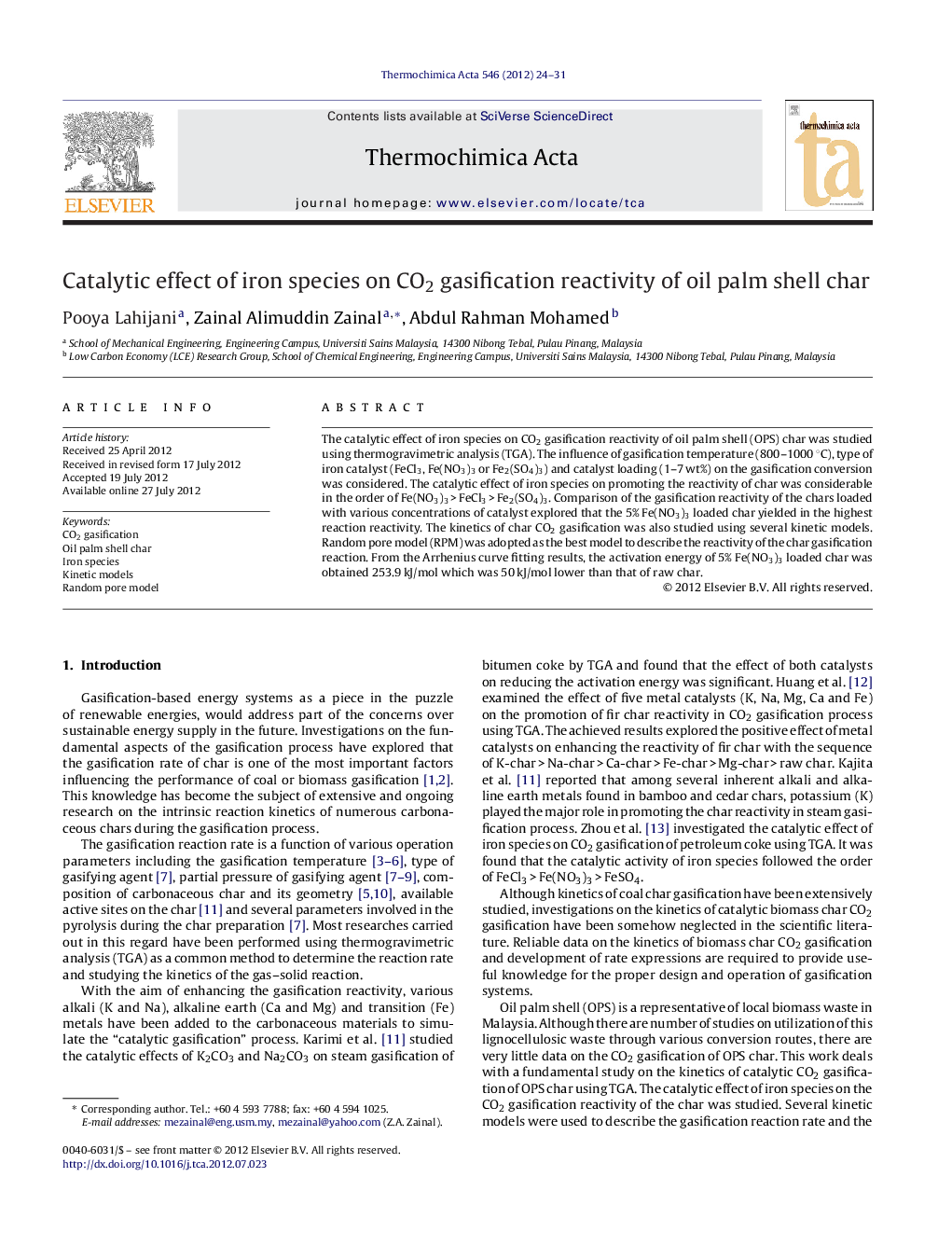| Article ID | Journal | Published Year | Pages | File Type |
|---|---|---|---|---|
| 674070 | Thermochimica Acta | 2012 | 8 Pages |
The catalytic effect of iron species on CO2 gasification reactivity of oil palm shell (OPS) char was studied using thermogravimetric analysis (TGA). The influence of gasification temperature (800–1000 °C), type of iron catalyst (FeCl3, Fe(NO3)3 or Fe2(SO4)3) and catalyst loading (1–7 wt%) on the gasification conversion was considered. The catalytic effect of iron species on promoting the reactivity of char was considerable in the order of Fe(NO3)3 > FeCl3 > Fe2(SO4)3. Comparison of the gasification reactivity of the chars loaded with various concentrations of catalyst explored that the 5% Fe(NO3)3 loaded char yielded in the highest reaction reactivity. The kinetics of char CO2 gasification was also studied using several kinetic models. Random pore model (RPM) was adopted as the best model to describe the reactivity of the char gasification reaction. From the Arrhenius curve fitting results, the activation energy of 5% Fe(NO3)3 loaded char was obtained 253.9 kJ/mol which was 50 kJ/mol lower than that of raw char.
Graphical abstractFigure optionsDownload full-size imageDownload as PowerPoint slideHighlights► We report the effect of iron species on CO2 gasification of oil palm shell char. ► The reactivity sequence is: Fe(NO3)3-char > FeCl3-char > Fe2(SO4)3-char > raw char. ► We found that 5% Fe(NO3)3 has the highest impact on enhancing the char reactivity. ► Activation energy of 5% Fe(NO3)3-char is 50 kJ/mol lower than that of raw char. ► Random pore model is the most suitable model to interpret the experimental results.
